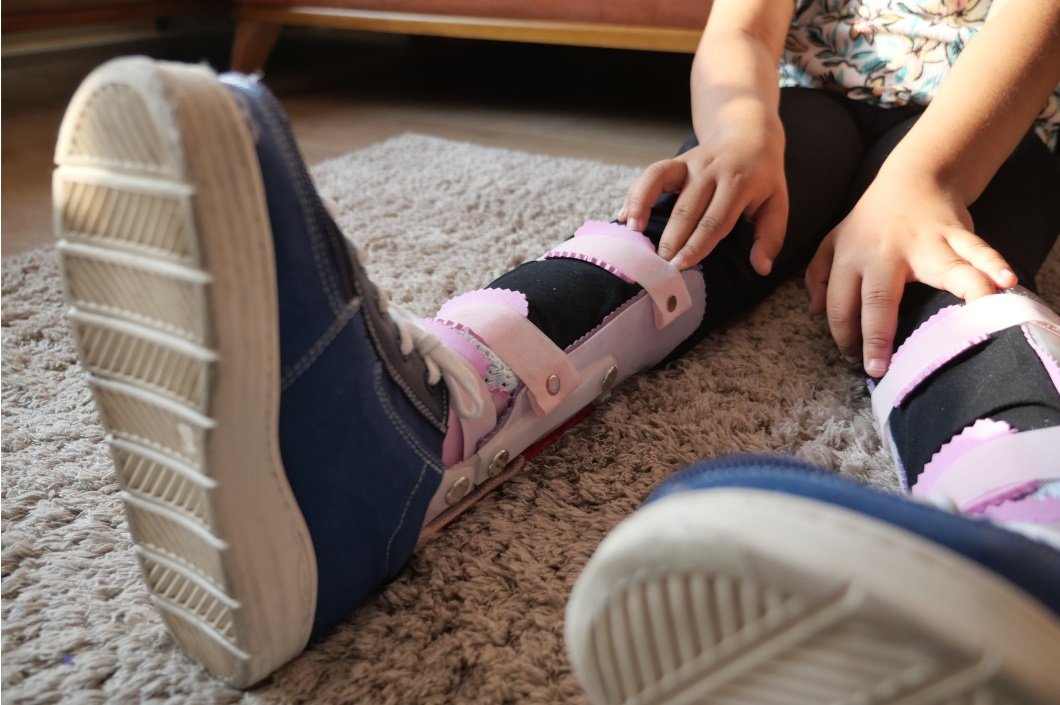Developmental Physiotherapy
Developmental Physiotherapy is a specialised area of physical therapy focused on supporting the motor development and physical well-being of children from infancy through adolescence. It is designed to address and treat a range of developmental delays or physical conditions that may impact a child's ability to achieve typical motor milestones, such as crawling, walking, running, or maintaining posture and balance.
This specialised therapy is beneficial for addressing a wide range of conditions, including but not limited to:
global developmental delay
infantile gross motor delay
physical disabilities
neuromuscular conditions
orthopaedic presentations such as plagiocephaly/torticollis
post-surgical recovery
At Barwon Kids, our mission is to empower children to achieve their fullest potential, promoting both mobility and confidence in a nurturing environment.
The goal of Developmental Physiotherapy is to help children achieve their fullest physical potential and enhance their ability to engage in daily activities and play.
Early intervention is crucial in Developmental Physiotherapy, as it helps to maximise outcomes, minimise complications, and support the child's overall development.
Working closely with parents and caregivers, Physiotherapists ensure that therapy is fun, engaging, and appropriate for the child's age and needs.
Treatment aims to improve:
Strength and endurance
Flexibility
Coordination
Physical fitness
Treatment may include tailored exercises, play-based therapy, posture training, balance and coordination activities, and support for mobility aids when necessary.
This approach not only supports the acquisition of essential movement skills but also promotes confidence and independence in daily activities. With a strong emphasis on family involvement, Developmental Physiotherapy empowers caregivers with knowledge and strategies to foster their child’s growth and well-being.

If appropriate, our Paediatric Physiotherapist Phoebe can also assist with:
NDIS
Bike riding
Assistive technology including complex seating, mobility aides, splinting
Our Services
Infant development:
Phoebe is highly skilled in supporting early gross motor development such as rolling, sitting, crawling, cruising and walking. Phoebe has a hands on approach and works with you to understand your baby’s movement.
The early years can be an uncertain time for some infants and their families. Phoebe understands this and can help parents and caregivers navigate this period at their own pace, in their own way. Therapy support can be provided where you and your baby are comfortable, at home, at the clinic or somewhere else, as often or as little as you would like.
Neurodevelopmental therapy:
Phoebe is focused on improving movement and functional abilities in children with neurological, genetic, and neuromuscular conditions. Phoebe uses specialised techniques to promote optimal motor development, enhance coordination, and improve overall physical function.
Phoebe will always work closely with children and their families, employing play-based activities to encourage movement patterns that support daily living skills. By addressing the unique challenges faced by each child, neurodevelopmental physiotherapy aims to foster independence and enhance quality of life.
Equipment prescription:
A vital aspect of supporting children with physical disabilities, aims to enhance mobility, independence, and overall quality of life. Phoebe’s process involves the assessment of a child’s specific needs, abilities, and environment to identify the most appropriate assistive devices and subsequently to liaise with equipment suppliers to trial, apply, and deliver the equipment in a timely manner.
Commonly prescribed equipment includes wheelchairs, mobility aids, orthotics, and adaptive seating solutions, all designed to facilitate movement and participation in daily activities.
Effective equipment prescription not only improves physical function but also promotes social inclusion and engagement in school and community settings. It requires collaboration among healthcare professionals, families, and the child to ensure that the chosen devices are suitable, comfortable, and user-friendly.
Ongoing evaluation and adjustments are essential to accommodate the child’s growth and changing needs, ensuring they receive the maximum benefit from the prescribed equipment.




